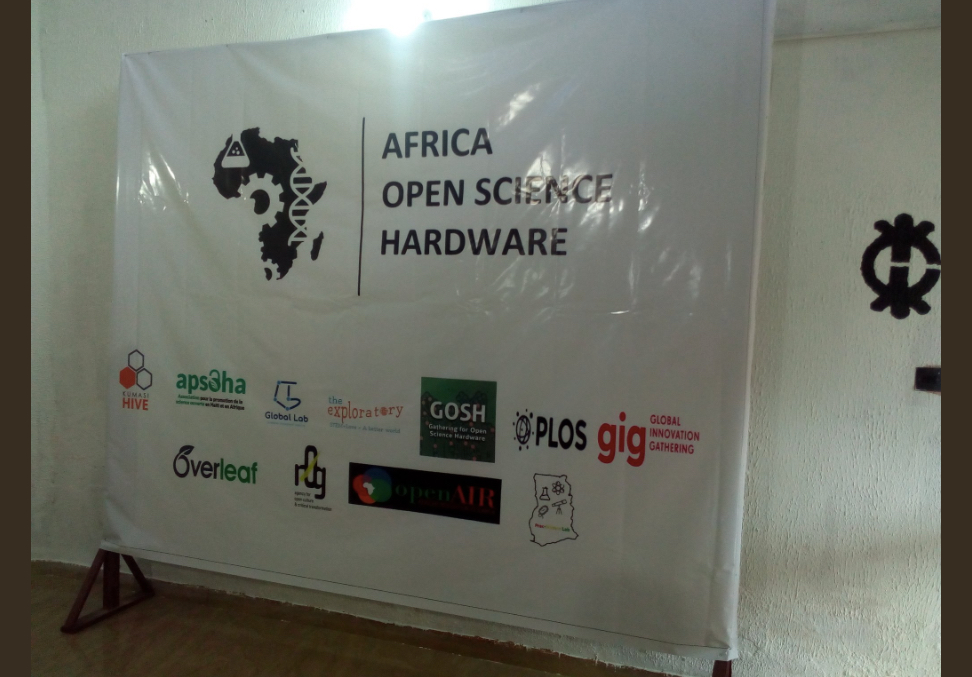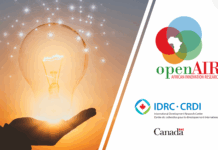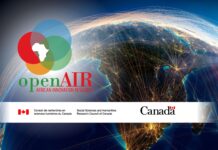By Outlwile Maselwanyane
The first gathering for Africa Open Science & Hardware (AfricaOSH) was hosted by Kumasi Hive innovation hub, Kumasi, Ghana, on April 13-15 2018. AfricaOSH is a diverse, global community working to enhance the sharing of open, scientific technologies in Africa. The summit gathered together makers, practitioners, civil society, academics and researchers from different fields across the African continent and the rest of the world.
One of the key goals of AfricaOSH Summit 2018 was to extend a forum to examine and provide input for a roadmap to bring together the people, skills and tools needed to make open science and hardware universal by 2025. I had the pleasure of attending as a panellist for Open AIR alongside Yaw Adu-Gyamfi, Vipal Jain & Dr Chris Armstrong. The panel discussion covered Open AIR’s research work on the maker movement in Ghana, South Africa, Kenya and Egypt and making and bio-hacking in Africa and Canada.
Without much public attention, the maker movement has risen from a fringe hobby to a prominent lifestyle with important implications for public concern. In my research paper I explored the potential of urban makerspaces for commons based peer production (CBPP) in innovation, education and community building in Braamfontein. I looked into how principles of commons-based peer production allow individuals to communicate, self-organise and create. From the research I realised that the makerspaces present an alternative form of institutional space, where participants can be free from particular constraints required for markets. They offer participants a significant degree of control and influence over important elements of their daily lives.
Furthermore, my research explored how makerspaces theoretically contribute to innovation, education and community building. Innovation, referred to any type of creating, tinkering, hacking or effort to produce a meaningful new form. From the research I realised is that a makerspace offers as environment supportive of user-led innovations and makes prototyping more available and affordable. This is enabled by the typical tools found in makerspaces which include 3D printers, laser-cutters, computer numeric machines (CNC) amongst others.
An additional benefit of makerspaces is access to human capital, as participants share knowledge of tools and ideas for projects. They form networks of individuals with different training, experiences, and skills, creating an ideal setting for a learning environment. Experimental learning through making presents another form of education. Thus, there is a need to transform what counts as learning and making can play a crucial role.
Makerspaces offered participants a sense of community, a group of people with whom they could identify. Participants highlighted the importance of finding like-minded people who became something like a second family.
During the summit a lot of thoughtful, engaging and challenging questions and opinions were expressed. Summits like AfricaOSH are necessary as they allow stakeholders to interact, share perspectives and ultimately align goals to further develop the continent and create an enabling environment for Africa to thrive.










